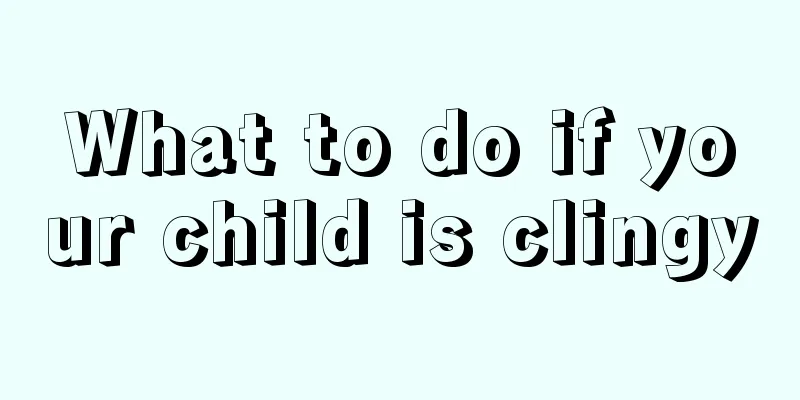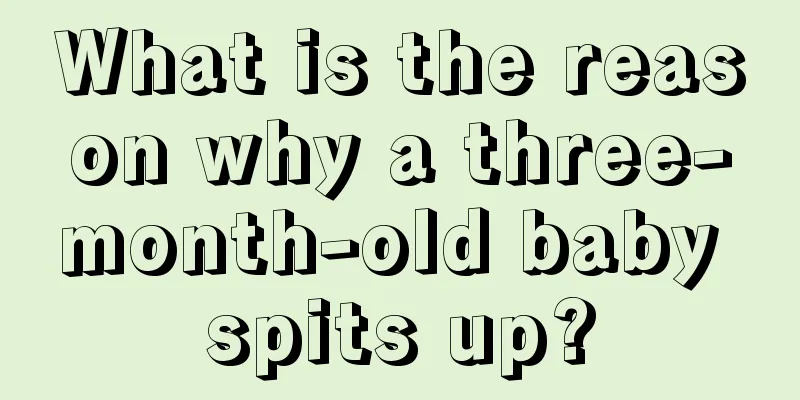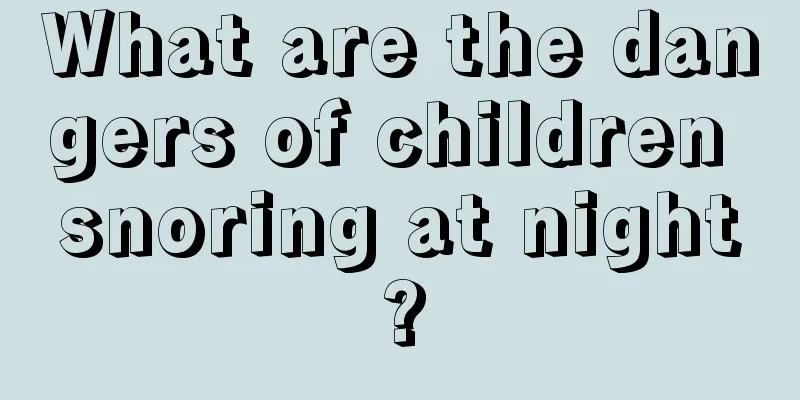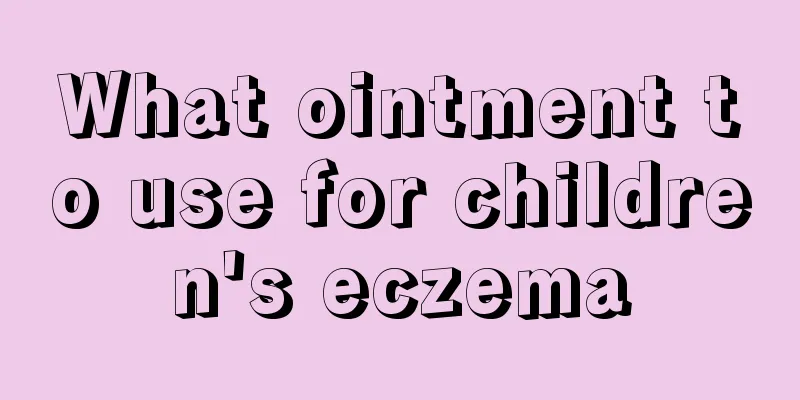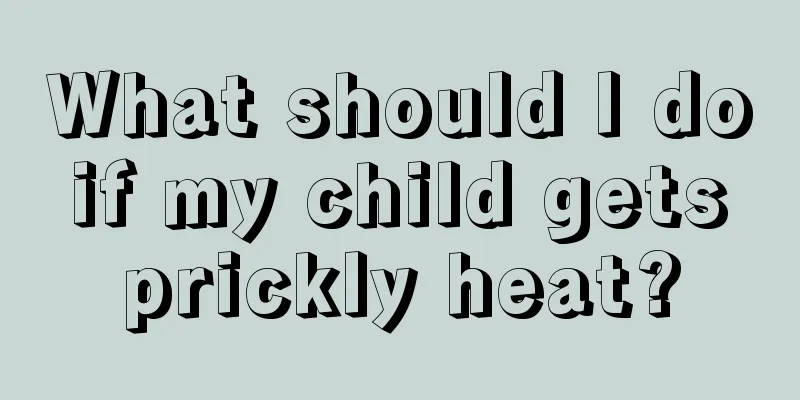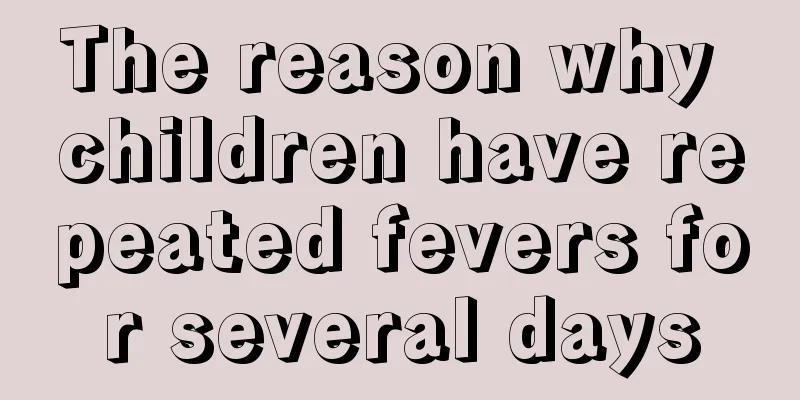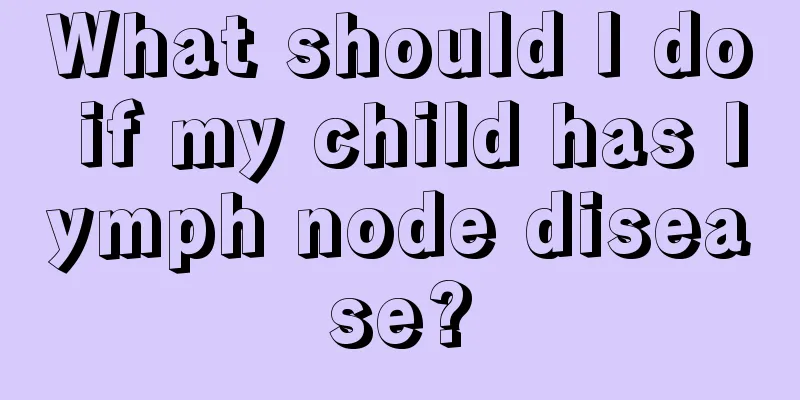What should I do if my child has a stuffy nose and cough? A few tips for you
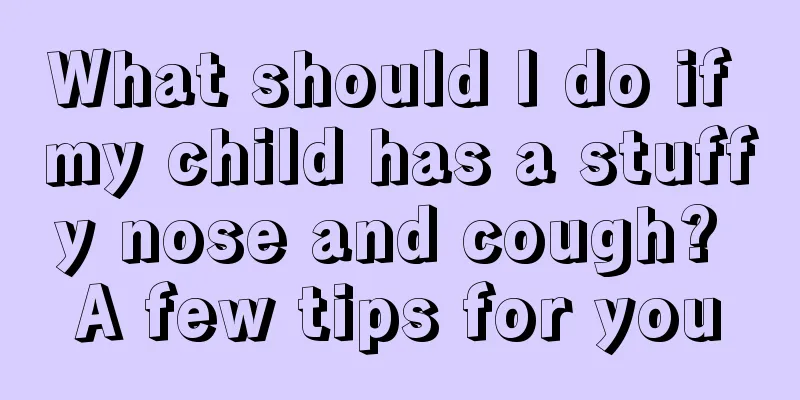
|
Mothers are very worried when their children catch a cold, because they cannot communicate well and cannot assist in treatment. Therefore, many mothers will even try all kinds of medical treatments in a hurry. In fact, for babies' nasal congestion and cough, saline and nasal aspirators, raising the upper body, steam and patting the back, and drinking more water are all very effective. Mothers should learn more about this. 1. Cold and stuffy nose 1. Saline and nasal aspirator Drop some saline solution into the child's blocked nasal cavity, wait for a while, and then use a nasal aspirator to gently suck out the mucus. Saline solution has no side effects and can be used more often throughout the day as long as the child cooperates. At first, the child will feel scared and need parents to coax him or use it when it affects the child's drinking and sleeping. 2. Raise your upper body Raise your mattress a little when you sleep and put a pillow under it. Because when the child lies flat, the mucus is easy to flow back and affect his sleep. So raising the mattress a little bit can relieve postnasal drip. 2. Cough and phlegm 1. Steam and pat on the back Turn on the water heater in the bathroom and close the door. When there is water vapor inside, hold the child in it and let the child breathe the focused steam for a few minutes, which can dilute the child's phlegm. Then, pat the child's back with your hollow palm to help expel phlegm. Don’t stay in the bathroom for too long. When you come out, leave the door open for a while to allow the child to adapt before coming out. 2. Drink plenty of water For children with a lot of phlegm and cough, drinking more water can help dilute the phlegm and relieve the cough. So give your child fluids in small amounts and frequently. In addition, it is necessary to maintain the humidity in the home and let children rest more during a cold, as rest can help the body recover. Avoid strenuous exercise. It may take 2 to 3 weeks to recover from a cough caused by a cold. Whether it is a common cold or influenza, if your child exhibits these symptoms, he or she needs to go to the hospital. During a cold, the child suddenly cries or becomes irritable, saying that his ears hurt or the baby scratches his ears with his hands. Or if you have more green nasal discharge, headache, pain on the upper palate, or runny yellow nasal discharge for more than 3 weeks after a cold, you need to go to the hospital for examination. If a child has a fever above 39°C and lasts for more than 48 hours, he or she needs to go to the hospital for examination. Or if you have a fever for more than 5 days, no matter what the temperature is, you need to go to the hospital for examination immediately. If your child's breathing is faster or more labored than usual, go to the hospital right away. |
<<: How to deal with clear runny nose in young children?
>>: What are the specific symptoms of fever in newborns?
Recommend
Does Kawasaki disease affect life expectancy?
Kawasaki disease is a disease that troubles the l...
What to do if your baby's eyes are yellow? Timely treatment is the key
Newborn babies are generally very weak and can ea...
Why does my child shiver when sleeping?
We often find that newborn babies' arms or fe...
What to do if your 2-year-old baby has vomiting and diarrhea
Children aged 2 are in the period of growth, so t...
Causes of foaming at the baby's mouth
After birth, babies often catch colds and fevers ...
How many times a day should a 50-day-old baby poop?
After birth, newborns will defecate almost every ...
There is a small lump on the child's genitals?
If a child has a small lump on his genitals, it i...
What should I do if my child's bone age is too high?
In modern society, due to many reasons, some chil...
How old is it for a baby girl to wear underwear?
There are many babies who stop wearing diapers as...
What should I do if my child doesn't grow taller?
As parents, we are all very worried about the pro...
Can enlarged nasal conchae be cured?
Can children's enlarged nasal concha be cured...
When is the best time for children to drink milk?
Everyone knows the benefits of drinking milk to t...
What is the reason for baby's stool to be stringy?
Babies don't have much ability to express the...
What should I do if my child has a poor memory?
If there is a baby in the family who is in school...
Symptoms of iron deficiency anemia
Anemia is a common phenomenon among women and chi...
